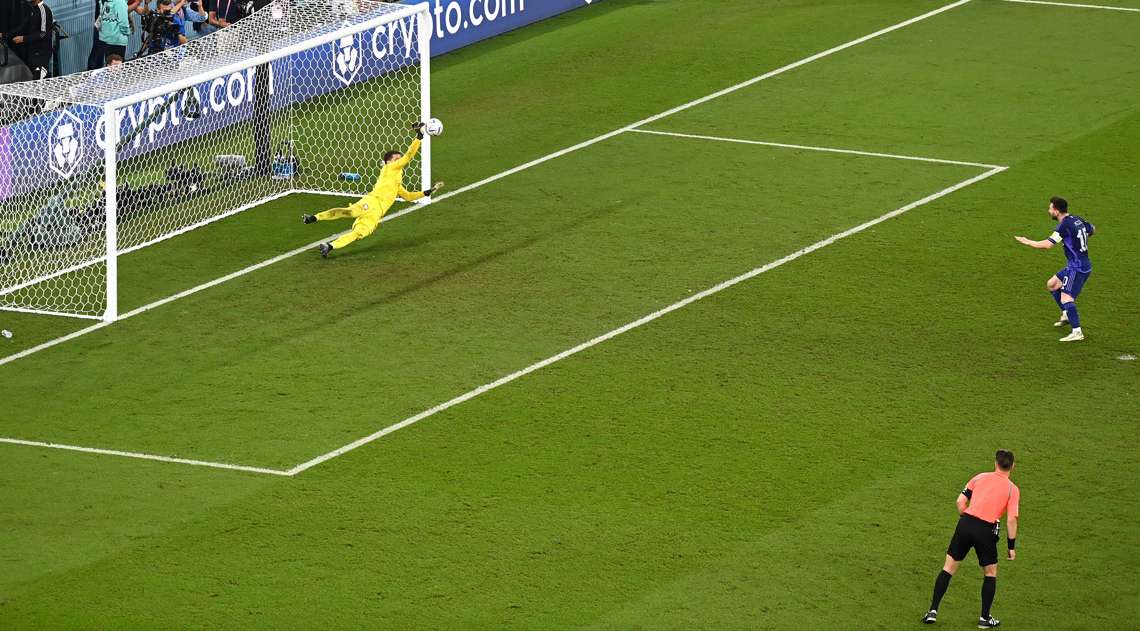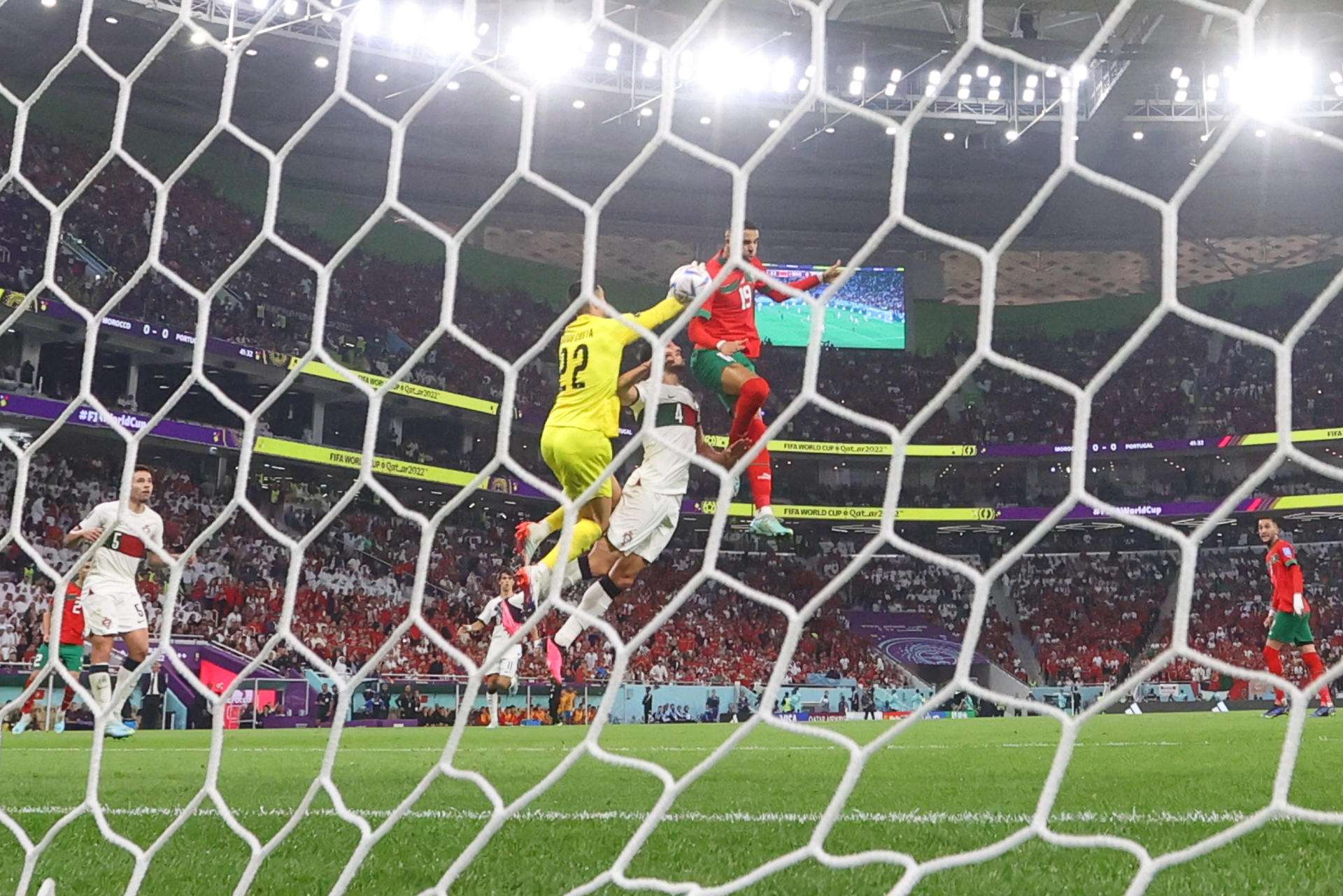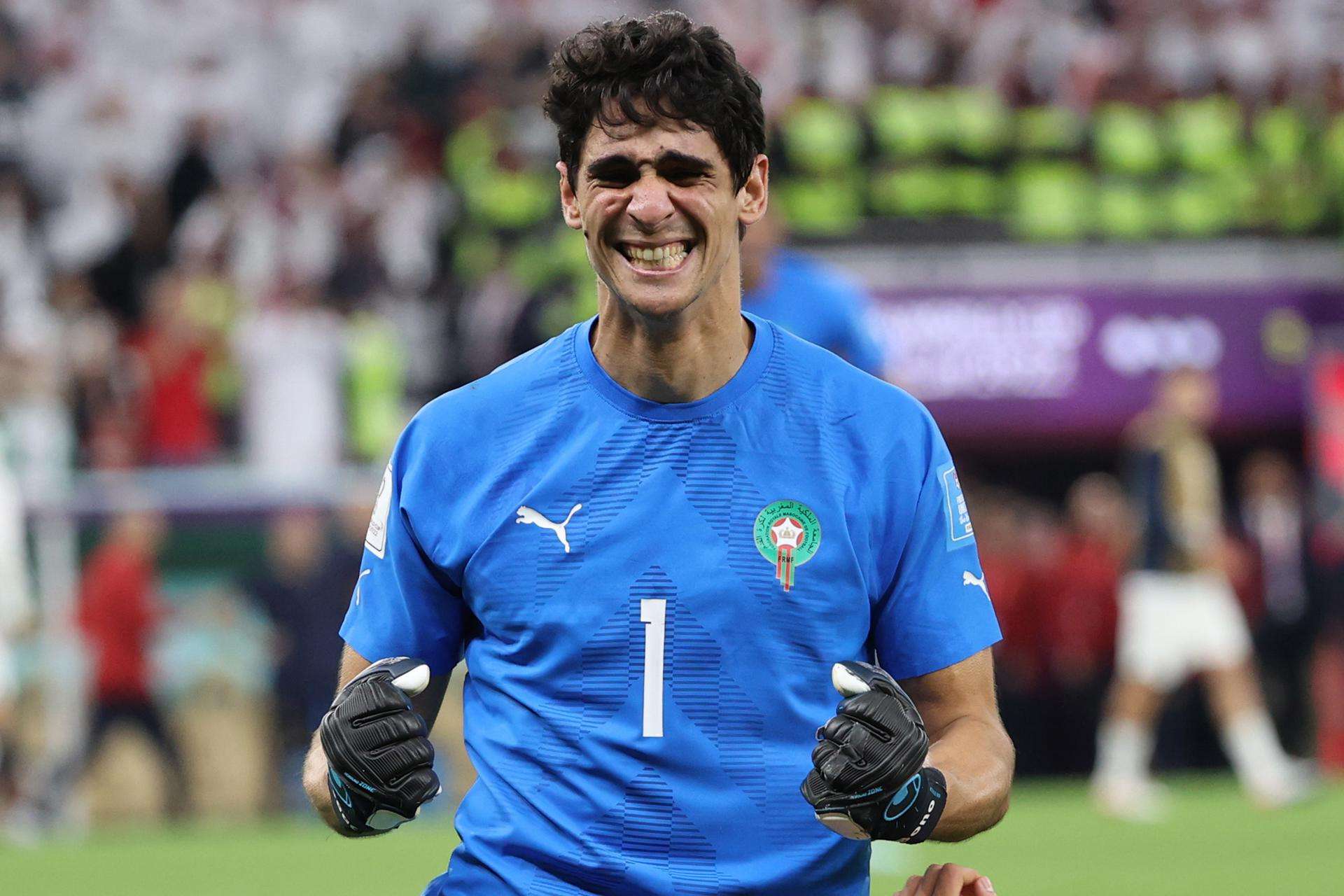First there was the Muscovite who, putting on a pair of gloves, grew eight arms, then came the Englishman with the iron thumb, even the Spanish saint who squeezed oranges with his legs. Then some Germans found more just reasons to erect themselves as a wall, and they were followed by a Belgian who, when he stretched out under poles, could cover the whole country with him. Until in Qatar 2022 two goalkeepers resurfaced for whom no one bet a copper glove before November 20.
Yassine Bono was born in Canada, speaks Spanish with an Argentine accent, and represents Morocco, the nation of her parents. She is 31 years old and developed a large part of his career in Spain: first Girona and now Seville. Dominik Livakovic, meanwhile, was the third goal when Croatia played the final against France four years ago. Now he should be Lovre Kalinic’s substitute, but when he was injured, the Dinamo Zagreb player had to assume the Balkan cabin… to the suffering of Japan and Brazil.
The goalkeepers have a decisive role in the actions of the teams. Great results in appointments around the world often depend on your reflexes, safety, leg speed and orientation. With the exception of the Belgians Michel Preud’homme, in the United States 1994, and Thibaut Courtois, in Russia 2018, all the winners of the Gold Glove in World Cups have guided their teams to the final.
Goalkeepers of the stature of French Fabián Barthez, Italian Gianluiggi Buffon, Spanish Iker Casillas and German Manuel Neuer lifted the World Cup together with said award, while Oliver Kahn, in 2002, had to settle for only the Lev Yashin award. after being surpassed by Ronaldo in the discussion of the crown.

Indeed, Yashin, the Soviet “black spider”, was the first goalkeeper to use gloves in the Sweden 58 edition. FIFA considers him the best goalkeeper in the Cups, however, in Chile 62, in a match against Colombia, Yashin allowed the first and only Olympic goal scored in World Cups to the Colombian Marcos Coll.
British Gordon Banks’ save on Pelé’s chopped header in Mexico 70 is considered the best of the World Cups. Likewise, there have been other saving interventions, such as that of Iker Casillas one-on-one against the Dutchman Arjen Robben in the final of South Africa 2010, and Neuer’s blocking of Karim Benzema’s shot in the quarterfinals of Brazil 2014.
unbeatable
Regarding unbeaten minutes, the transalpine Walter Senga stands out. The Azzurri, in Italy 90, spent five games with the fence at zero, until in the semifinals the Argentine Paul Canniggia drilled his goal in the 67th minute of time. Finally, he totaled 570 minutes without allowing a goal. He only accepted two in the entire Cup.
The second in this ruble is the Englishman Peter Shilton. Remembered for receiving the goal of the century from Maradona and the hand of God, perhaps the most famous targets in World Cups, the goalkeeper of the three lions chained 501 minutes with an immaculate goal between 1982 and 1986. After conceding a goal in the first game from England in the Spanish event, there were the other four that his team played with zeros in the goal. Already on Mexican soil, in the first round, the Portuguese Carlos Manuel cut his streak in the 20th round.

Another who extended his chain for two World Cups was the Spanish Iker Casillas, third on the list. The Móstoles eagle closed his door in the four decisive matches of South Africa 2010, including the final, after conceding two goals in the group stage. Robbin Van Persie ended the run in the red’s debut in Brazil, scoring a great goal at minute 44. He accumulated 477.
The German Sepp Maier and the legendary Gianluiggi Buffon close the table, with 475 and 460 minutes, respectively. It is worth noting that Gigi, in the 2006 German edition, only allowed an own goal from Christian Saccardo and a penalty from Zinedine Zidane. Something similar happened in Qatar 2022 with Bono, who until the semifinals only allowed an own goal from Aguerd.
It’s country for old men
The goalkeeper position is, in general, the longest-lived in football and the World Cups have not been the exception. Of the ten oldest to play in World Cups, five are goalkeepers. With more than 40 years of age, the Northern Irishman Pat Jennings, the aforementioned Peter Shilton, the Tunisian Ali Bumnijiel, the Italian Dino Zoff, and, in Brazil 2014, the Colombian Farid Mondragón, took to the field.
Precisely, in Russia 2018, the Egyptian goalkeeper Assam el Hadarry broke the record (43 years) of the Mondragón coffee grower by becoming the oldest player to participate in a World Cup (45). For a position player, the mark is still held by Cameroonian striker Roger Milla, with 42.
In this section of experienced, one of the Azurran legends under the three sticks deserves special mention: Dino Zoff. In Spain 1982 he lifted, with 40 calendars, the world champion trophy, making him the oldest captain and player to do so to date. In addition, along with his countryman Giampiero Gombi (1934), Iker Casillas (2010) and Hugo Lloris (2018), he is the only goalkeeper to win a world final with the leader’s baton on his arm.

What sorrows do not cry
In stopped shots from twelve steps, three goalkeepers outperform the rest. With four penalties saved each, counting penalties, include the German Harlod Schumacher, the Argentine Sergio Goycochea, Iker Casillas -the only one who repeats from the previous relationship-, and the aforementioned Dominik Livakovic, between the eighth and quarterfinals of this edition.
Tony, as the German goalkeeper was known, was the protagonist in the maximum penalty lottery in the 1982 semis, when he covered two shots against France; and in the World Cup in Mexico, by blocking two more against the host country in the quarterfinals.
But of the triad, without a doubt Goyco is the most sensational if we talk about detention of penalties. His performance eclipsed that of the Italian Zenga in the 1990 edition due to his performances beyond extra time. The gaucho led the albiceleste to the final after stopping two penalties in the quarterfinals and semis against Yugoslavia and Italy, respectively. As a curious fact, the FIFA.com site states that the Argentine had a cabal before the definition: urinate in the midfield hidden by his teammates.
Lastly, San Iker was a key player in La Roja’s advance to the round of 16 in Korea Japan 2002, stopping Ireland’s three shots from the spot in the area: one to Ian Harte during the match and another two in the shoot-out against the green. In South Africa 2010, thanks to a tip from his teammate Pepe Reina, he saved Oscar Cardoso’s shot from 11 meters, which would have meant the draw against Paraguay in the quarterfinals.
Likewise, with three maximum penalties stopped in the same round appear the Portuguese Ricardo against England in 2006, Daniel Subasic against Denmark in 2018 and, finally, his compatriot Livakovic in these round of 16 against Japan.
In Qatar 2022, several goalkeepers have stood out in the penalty shootout. According to Mister Chip, the Pole Wojciech Szczesny (two in 2022) equaled his compatriot Jan Tomaszewski (two in 1974), the American Brad Friedel (two in 2002) and Iker Casillas (one in 2002 and 2010) as the only ones with two penalties unemployed (not counting batches) in the entire history of the World Cup. In the case of the current Juventus player, he did it all in the group stage like the northerner Friedel 20 years ago.

The hidden goal has been the Dutchman Noppert, who has debuted in these games at the age of 27 after spending time with discrete teams in Italy and his country. His saves sustained those led by Van Gaal in the first match against Senegal, although he later failed to beat Argentina in the quarterfinal round.
With the goalkeepers of the African squads, everything has happened in Arab lands. Onana, from Inter, was the holder of the position with Cameroon, but after the first meeting, DT Alexandre Song decided to dismiss him because the game system did not fit his scheme. Song wanted a “normal” goalkeeper (whatever that means) and the former Ajax player decided to abandon the call.
For Eduard Mendy, the Senegalese, the Cup was an extension of what he is experiencing with Chelsea this season. His insecurity cost him two goals in his debut against the Netherlands. One of the disappointments under sticks in this World Cup.

Another happened with Diogo Costa, the Portuguese who defends Porto’s goal. Nervous since his World Cup debut until he starred in the goal against his team in the quarterfinals against Morocco, Costa’s ownership will be another of the controversies that will fall on Fernando Santos, who never played Rui Patricio, hardened in three previous World Cups .
Instead, Bono has established himself as a figure of the Moroccan team. He made, perhaps, the tournament save before a left-footed shot from Joao Felix and in addition he blocked a shot from Cristiano Ronaldo, his last in the Cups.
In the World Cups, first it was Lev Yashin, then Banks, the sting of Higuita, the aggressiveness of Schumacher, the madness of Buffon, the poise of Casillas, the solidity of Neuer up to Courtois, Subasic, Szcezny, Livakovic, Bono. It only remains to be seen who will win the decisive duel between “Dibu” Martínez and Hugo Lloris.














